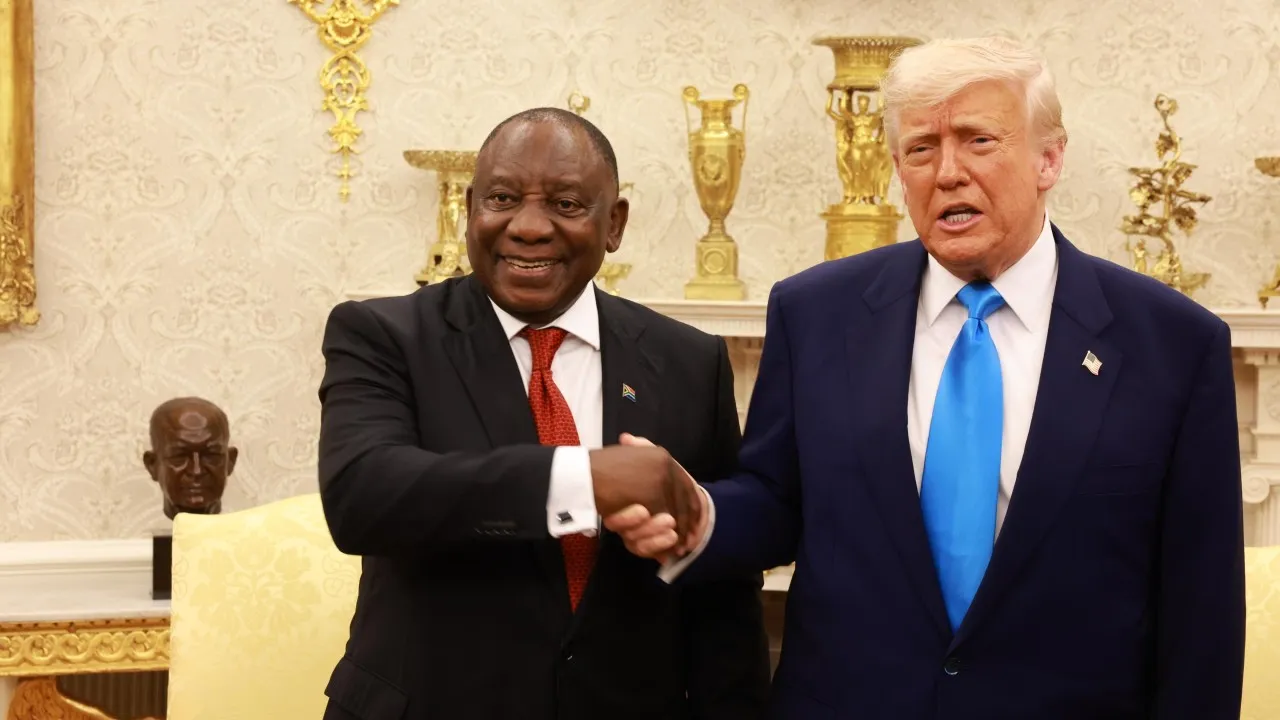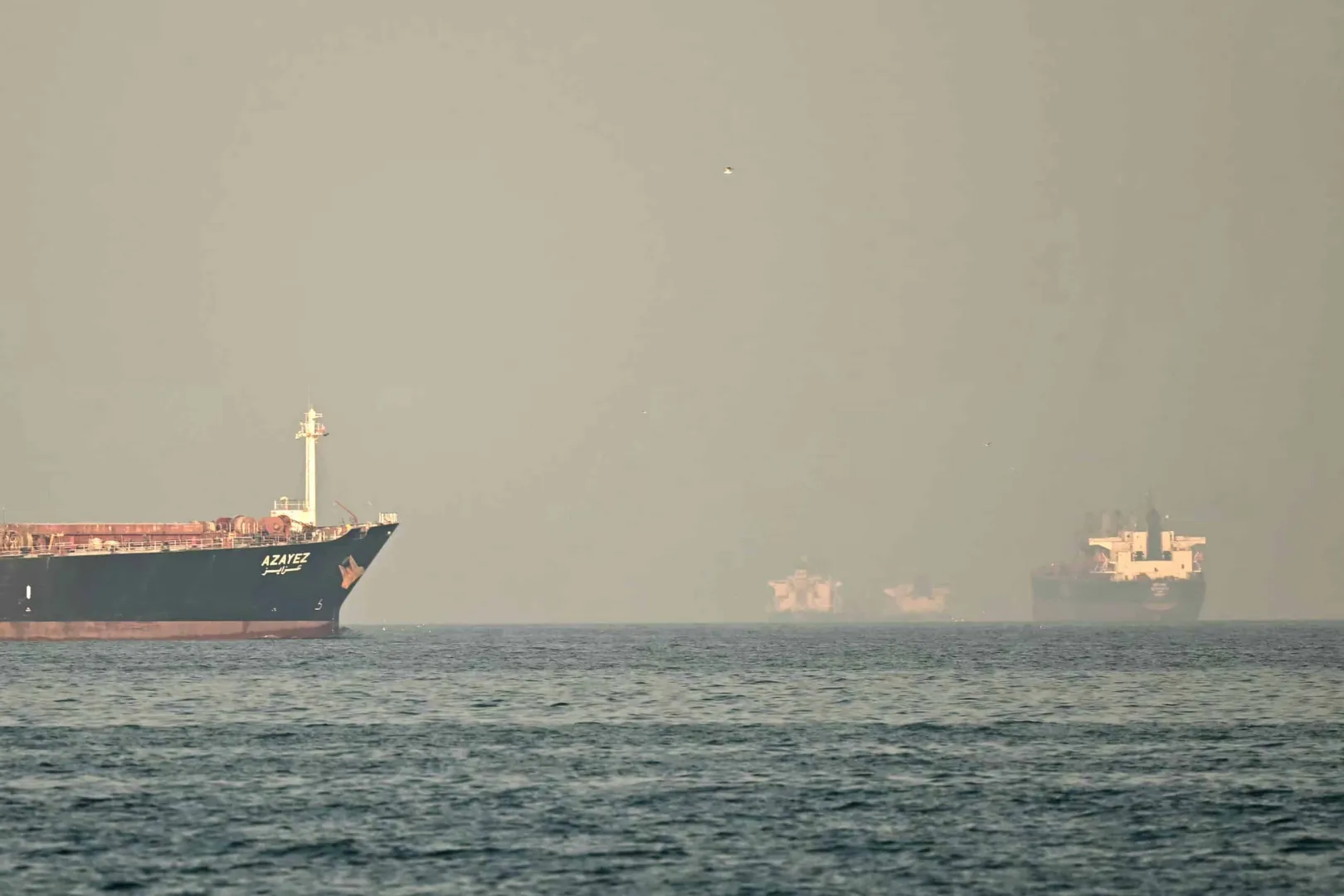During President Cyril Ramaphosa’s visit to the White House on 21 May 2025, South Africa tabled an ambitious trade package aimed at resetting bilateral ties strained under the Trump administration. At its core was an offer to import 75–100 petajoules (approximately 75–100 million m³) of U.S. liquefied natural gas (LNG) annually over the next decade, potentially unlocking US $900 million–1.2 billion in trade each year and totaling up to US $12 billion over ten years. This framework, set out in a ministerial statement by Minister in the Presidency Khumbudzo Ntshavheni, was published on the government news agency website shortly after the White House meeting but has since been temporarily removed due to technical issues. (Reuters)
Proposed LNG Imports and Economic Impact
South Africa’s pivot from coal-fired power towards cleaner natural gas is driven by chronic energy shortfalls at Eskom, the state utility, and dwindling supplies from Mozambique’s Temane and Pande fields. U.S. LNG would serve as a vital complement to pipeline deliveries, ensuring continuity of gas for power generation, petrochemicals, and industrial users.
Analysis by the U.S. Energy Information Administration shows that the United States exported a record 93 billion cubic meters of LNG in 2024, making it the world’s largest exporter. Locking in a long-term supply contract at “appropriate” market-linked prices would help South Africa manage fuel costs and hedge against volatility in pipeline tariffs. (Offshore Technology)
Beyond energy security, the trade in LNG is expected to deepen financial flows between the two countries—spurring investments in port infrastructure, storage terminals, and regasification units. South Africa has signaled it is open to U.S. investment in gas infrastructure and technology transfer, including hydraulic fracturing (“fracking”) know-how, to develop domestic resources in the Karoo region once an existing moratorium is lifted. (World Energy News)
Automotive and Metals Quotas to Broaden Trade Ties
Complementing the LNG offer, South Africa proposes duty-free quotas on key exports to the United States:
- 40,000 passenger vehicles annually, plus tariff-free access for automotive components manufactured in South Africa.
- 385 million kg of steel and 132 million kg of aluminium each year.
These measures aim to bolster South Africa’s automotive industry—anchored by plants from Volkswagen, Toyota, and BMW—and leverage U.S. demand for competitively produced components. Analysts at Reuters note such quotas could generate an additional US $1 billion in annual export revenues, supporting jobs in Gauteng, Eastern Cape, and KwaZulu-Natal provinces.
Energy Security and Infrastructure Partnership
South Africa’s decision to engage with U.S. LNG exporters dovetails with broader regional efforts to diversify energy sources. The government has earmarked US $3 billion in its 2025 budget for new gas-to-power projects, with private-sector partners lined up for regasification terminals at Saldanha Bay and Durban. A binding U.S. supply contract would de-risk these investments, allowing lenders to underwrite long-term loans for infrastructure development.
In turn, U.S. companies such as Cheniere Energy and Freeport LNG are keen to secure stable long-term off-take agreements amid rising global competition. The International Energy Agency forecasts that African LNG imports will surge by 50 percent by 2030, presenting a lucrative opportunity for both exporters and host nations. (Hart Energy)
Environmental and Regulatory Context
South Africa’s heavy reliance on coal—over 70 percent of electricity generation—has drawn criticism for high carbon emissions. Natural gas offers a transitional pathway, emitting roughly 50 percent less CO₂ than coal when used for power. Minister Ntshavheni highlighted that U.S. LNG would “complement, not replace” existing suppliers, helping to reduce load-shedding outages and improve air quality in urban centers like Johannesburg and Tshwane.
However, domestic fracking remains suspended under a 2011 moratorium designed to protect the Karoo’s unique ecosystems. Companies including Sasol, Shell, and Falcon Oil & Gas have exploration rights in the region, but environmental groups argue that fracking could contaminate scarce groundwater resources. Any proposal to lift the moratorium will require rigorous environmental impact assessments and community consultations.
Diplomatic and Political Dimensions
The LNG-for-trade package arrives against a backdrop of tense U.S.–South Africa relations under President Trump, who criticized South African land-reform policy and threatened to withdraw development aid. The White House meeting saw mutual accusations—Trump wrongly alleging a “genocide against whites” in South Africa, and Ramaphosa pressing for U.S. support on vaccine distribution and defense cooperation.
By offering a multi-billion-dollar energy deal, South Africa hopes to shift the narrative towards economic partnership. The inclusion of auto and metals quotas also appeals to U.S. labor unions and manufacturing lobbyists concerned about reshoring and fair trade. Ambassador Philip Thigo, Kenya’s Special Envoy on Technology, recently praised similar deals for enhancing regional stability and trade integration in Africa. (Anadolu Ajansı)
Regional Energy Landscape and AfCFTA Implications
Under the African Continental Free Trade Area (AfCFTA), tariff elimination and trade facilitation aim to boost intra-African trade by 52 percent by 2030. South Africa’s LNG imports could be re-exported as pipeline gas to neighboring countries—Lesotho, Eswatini, Zimbabwe, and Malawi—enhancing regional energy security and generating transit fees.
Moreover, African refiners in Nigeria, Egypt, and Algeria are exploring gas-to-liquids (GTL) technologies that convert LNG into diesel and chemicals. U.S. technology providers have expressed interest in joint ventures, potentially positioning South Africa as a gas-processing hub for southern Africa. (Mitrade)
Potential Challenges and Risk Mitigation
Despite its promise, the proposed deal faces hurdles:
- Price Volatility: Global LNG spot prices have swung between US $8/MMBtu and US $25/MMBtu, driven by weather-related demand and supply disruptions. Contract terms will need price-linking mechanisms or hedging instruments to protect both buyers and sellers.
- Regulatory Approval: The U.S. Federal Energy Regulatory Commission (FERC) must approve long-term export authorizations for new LNG projects—a process that can take 12–18 months.
- Infrastructure Delays: South Africa’s ports often face congestion, and rail links to inland regasification sites require upgrades. Public-private partnerships may accelerate these works, but financing risk remains.
- Environmental Opposition: Local communities and NGOs may challenge fracking or coastal LNG terminals on environmental and social grounds, leading to legal delays.
Human Stories: Across the Supply Chain
Behind the numbers lie the lives of ordinary South Africans:
- Electricians at Eskom will be retrained to maintain new gas turbines.
- Truck drivers transporting LNG in cryogenic trailers could see higher wages as logistics volumes rise.
- Engineers and technicians will benefit from U.S. training programs in LNG handling and safety protocols.
In Richards Bay, small-scale fishermen initially worried about coastal tankers, but community-owned marine safety cooperatives have been established to monitor shipping lanes and minimize ecosystem disturbance.
Meanwhile, auto-component workers in the Eastern Cape anticipate more stable orders, preserving livelihoods that were once threatened by cyclical demand. This human dimension underscores why so many communities welcome diversification away from coal. (oilreviewafrica.com)
Looking Ahead: Cementing a New Era of Trade
If both sides finalize and ratify the agreement by July 2025, shipments could begin as early as Q1 2026—aligned with new regasification terminals coming online in Saldanha Bay. The broader package of LNG, automotive quotas, and metals access may serve as a template for similar deals with Brazil, India, and Australia, amplifying South Africa’s role as a trade gateway.
For U.S. exporters, securing a reliable buyer in South Africa helps justify further LNG liquefaction expansions along the Gulf Coast. For South Africa, the deal represents a pragmatic pivot towards energy security, industrial renewal, and sustainable growth. As Minister Ntshavheni noted, the proposal is designed to “complement existing suppliers,” signaling a cooperative, not adversarial, approach to global energy markets.
Conclusion
South Africa’s offer to purchase U.S. LNG encapsulates a broader strategy: leveraging natural-resource partnerships to cement stronger economic and diplomatic ties. By coupling energy supply with industrial export quotas, Pretoria aims to unlock multibillion-dollar trade flows, create jobs, and modernize its power system—all while navigating complex environmental and regulatory landscapes.
As global energy markets evolve and geopolitical currents shift, this proposed trade deal could mark a turning point—one where South Africa transitions from crisis-ridden grid outages to a diversified, resilient energy future, grounded in fruitful cooperation with the world’s top LNG exporter.
Ready to take your career to the next level? Join our dynamic courses: ACCA, HESI A2, ATI TEAS 7 , HESI EXIT , NCLEX – RN and NCLEX – PN, Financial Literacy!🌟 Dive into a world of opportunities and empower yourself for success. Explore more at Serrari Ed and start your exciting journey today! ✨
Photo source: Google
By: Montel Kamau
Serrari Financial Analyst
28th May, 2025
Article, Financial and News Disclaimer
The Value of a Financial Advisor
While this article offers valuable insights, it is essential to recognize that personal finance can be highly complex and unique to each individual. A financial advisor provides professional expertise and personalized guidance to help you make well-informed decisions tailored to your specific circumstances and goals.
Beyond offering knowledge, a financial advisor serves as a trusted partner to help you stay disciplined, avoid common pitfalls, and remain focused on your long-term objectives. Their perspective and experience can complement your own efforts, enhancing your financial well-being and ensuring a more confident approach to managing your finances.
Disclaimer: This article is for informational purposes only and does not constitute financial advice. Readers are encouraged to consult a licensed financial advisor to obtain guidance specific to their financial situation.
Article and News Disclaimer
The information provided on www.serrarigroup.com is for general informational purposes only. While we strive to keep the information up to date and accurate, we make no representations or warranties of any kind, express or implied, about the completeness, accuracy, reliability, suitability, or availability with respect to the website or the information, products, services, or related graphics contained on the website for any purpose. Any reliance you place on such information is therefore strictly at your own risk.
www.serrarigroup.com is not responsible for any errors or omissions, or for the results obtained from the use of this information. All information on the website is provided on an as-is basis, with no guarantee of completeness, accuracy, timeliness, or of the results obtained from the use of this information, and without warranty of any kind, express or implied, including but not limited to warranties of performance, merchantability, and fitness for a particular purpose.
In no event will www.serrarigroup.com be liable to you or anyone else for any decision made or action taken in reliance on the information provided on the website or for any consequential, special, or similar damages, even if advised of the possibility of such damages.
The articles, news, and information presented on www.serrarigroup.com reflect the opinions of the respective authors and contributors and do not necessarily represent the views of the website or its management. Any views or opinions expressed are solely those of the individual authors and do not represent the website's views or opinions as a whole.
The content on www.serrarigroup.com may include links to external websites, which are provided for convenience and informational purposes only. We have no control over the nature, content, and availability of those sites. The inclusion of any links does not necessarily imply a recommendation or endorsement of the views expressed within them.
Every effort is made to keep the website up and running smoothly. However, www.serrarigroup.com takes no responsibility for, and will not be liable for, the website being temporarily unavailable due to technical issues beyond our control.
Please note that laws, regulations, and information can change rapidly, and we advise you to conduct further research and seek professional advice when necessary.
By using www.serrarigroup.com, you agree to this disclaimer and its terms. If you do not agree with this disclaimer, please do not use the website.
www.serrarigroup.com, reserves the right to update, modify, or remove any part of this disclaimer without prior notice. It is your responsibility to review this disclaimer periodically for changes.
Serrari Group 2025
















